Covid-19 boosts immune support market
6 Apr 2020The novel coronavirus outbreak has had some unexpected side effects, including a sales boost for manufacturers of immunity-focused foods and supplements – although there is no evidence that any product can protect against the virus itself.
The market for products that support immunity was already one of the strongest segments in functional foods and supplements, and in the context of Covid-19, consumers are turning to products that promise to improve their immune systems more than ever, with companies and brands around the world reporting significant sales spikes in view of the ongoing crisis.
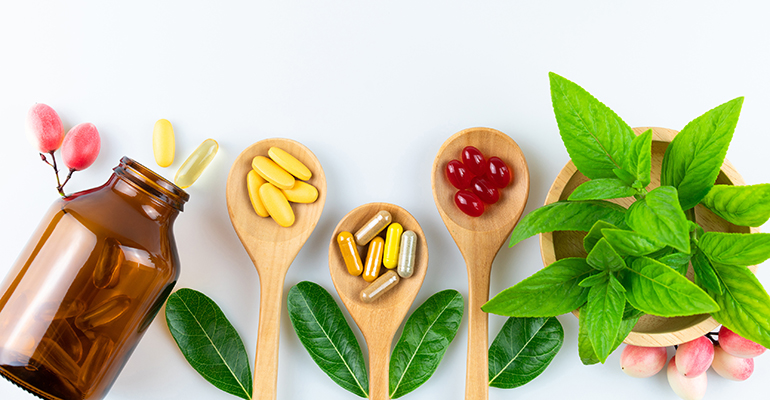
Globally, vitamin C is one of the most well-known nutrients for its role in immune support, and many companies have reported increased demand. For instance, Singapore supermarket chain Fairprice and Chinese e-commerce giant JD both reported up to a five-fold rise in sales of the vitamin in February, while JD said other products intended to boost immunity, such as herbal formulas and those based on Traditional Chinese Medicine have also seen increased demand.
DSM has a vitamin C production site in Jiangshan, China, and shipped 50 tonnes from its facility to Hubei in February to help improve residents’ immune response in the face of the outbreak. It also has a facility in Scotland, where demand has been higher than usual, according to the company. Chinese company Angel Yeast reported increased demand for glucan, lactoferrin and selenium-enriched yeast, while some suppliers of CBD oil, probiotics and mushroom extracts positioned for immune support have also said sales have risen.
Eating a healthy diet and ensuring sufficient intake of micronutrients is linked to greater resilience to infection and illness in general, as good nutrition helps ensure that the body has the tools it needs to produce an appropriate immune response. Someone with a suppressed or weakened immune system is more likely to suffer serious repercussions from any infection – and poor diet is one factor among many that could lead to a weaker immune response. That said, it is important to note that nothing can prevent a person from contracting Covid-19, other than avoiding exposure to the virus.
Nutrients thought to be beneficial for the immune system include vitamins A, B6, B9, B12, C and E, and certain minerals like zinc, copper, iron and selenium. For all of these nutrients, EFSA considers that a cause and effect relationship has been established between dietary intake and their contribution to the normal function of the immune system. Other promising nutrients, including probiotics, have not been successful in convincing EFSA of their efficacy for immune support – although many studies have linked increased gut microbial diversity with improved immune regulation.
Food and supplement manufacturers should take care that their products do not make any kind of unapproved implied health claim when it comes to immunity, however, particularly during the ongoing outbreak, as they could find themselves in regulatory hot water. Regulators worldwide, including the US Food and Drug Administration and European Food Safety Authority, have issued warnings to manufacturers making false claims in relation to the novel coronavirus.
Related news

Plastic packaging reduction requires industry rethink
6 Jan 2023
The food and beverage sector is calling for industry-wide collaboration and business model updates to reduce the environmental impact of plastic packaging.
Read more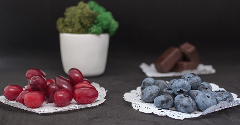
Misleading nutrition claims mask true sugar levels in baby food
5 Jan 2023
Some baby and toddler food and drink products, sweetened with fruit concentrate, contain up to four teaspoons of sugar per serving yet are marketed as having ‘no added sugar’, according to a survey by Action on Sugar.
Read more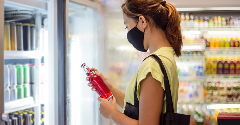
Asian beverage brands deal with rising costs
4 Jan 2023
Decreasing bottle sizes or increasing prices? Asian beverage brands are finding “creative approaches” to manage rising costs, according to industry analysts.
Read more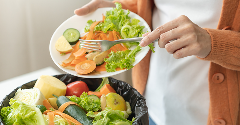
Preserving the freshness of food to fight waste
3 Jan 2023
Several companies are producing products that absorb ethylene, the hormone that causes food to ripen, in attempt to reduce food waste.
Read more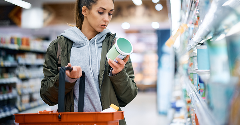
Value-seeking US consumers cut back on food spending
2 Jan 2023
Cheaper items, smaller sizes, and shorter grocery lists: inflationary effects coupled with a global long-term recession are set to continue shaping food spending habits, according to a recent Rabobank report.
Read more
Opportunities grow for lower-caffeine coffee
23 Dec 2022
Many consumers want the mental focus of caffeine without the jitters, prompting a wave of product development such as “half caffeine” ground coffee or ready-to-drink (RTD) cold brew blended with relaxing botanicals.
Read more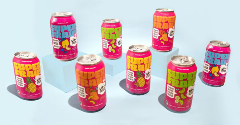
Superfrau upcycles liquid whey for energy drinks
22 Dec 2022
US company Superfrau turns surplus whey into sustainable, upcycled-certified dairy products for the recovery drinks market.
Read more
Malaysian brand Nanka brings jackfruit range to Europe
21 Dec 2022
Malaysian brand Nanka is expanding to new Asian and European markets with its fast and ready-to-eat plant-based products based on jackfruit.
Read more
Is the UK on target to meet its 2025 Plastics Pact?
20 Dec 2022
Major food industry players, including Arla, Kerry, PepsiCo and TerraCycle, have signed the UK’s voluntary Plastic Pact to reduce plastic from the supply chain – but are they on track to meet their targets?
Read more
Chinese food brand wants to give customers ‘the full experience’
16 Dec 2022
Food brand Xiao Chi Jie is revamping Chinese cuisine for the modern American consumer. The Washington-based company sells regional Chinese specialties like soup dumplings, noodle kits, and barbeque skewers direct-to-consumer in the US.
Read more